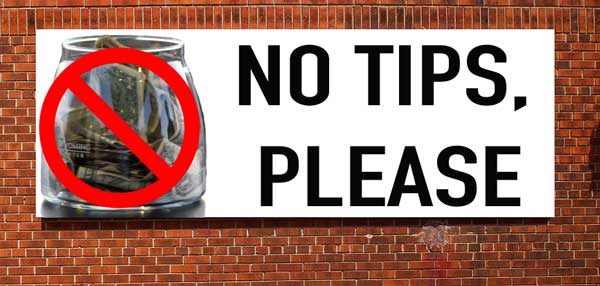Theirs isn’t a glamorous job, but title closers are present every time New York real estate trades hands.
They transfer bank checks, transport documents and do a myriad of different tasks associated with deal closings. For their efforts, they make a small fee per closing, but what really keeps them going are tips, often several hundred dollars worth, for getting the job done.
Starting Monday, however, state regulations meant to curb excesses in the title industry also include a ban on gratuities and attendance fees for closers, putting a big question mark on their livelihoods. The closers are usually independent contractors called upon by title agencies and lawyers.
“I’m working harder for less money,” said Beth Hazan, who attended a closing for a $1 million condo in Harlem (an all-cash deal) but had to walk away without a tip.
Maria Vullo, superintendent of the state’s Department of Financial Services, which polices the industry, said in a statement that the new regulations “end the widespread practice of using meals and entertainment as inducement for title insurance business and protect New Yorkers who will now know exactly what they are paying for during the closing process and will pay only their fair closing costs.”
But many see the rules as overreaching in an industry that relies heavily on marketing to win and retain business.
Typically, title companies pay closers $35 to $50 per closing, and closers rely heavily on tips — ranging from $150 to $250 — paid by the seller. An enterprising and busy closer can pull in up around $100,000 a year, according to interviews with several closers.
In 2016, there were 25 licensed title insurers in the state, according to DFS’ annual report. In 2015 — the most recent year available — those 25 companies underwrote $10.8 billion in premiums, up from $9.3 billion in 2014. It’s unclear how many closers work here, as the state doesn’t license or track them.
As an independent contractor with no benefits, Hazan said she’s used to hustling, and said she only took a week’s worth of maternity leave after the birth of her two young children. But now, faced with the loss of income, she said she’s considering moving out of state.
“How am I going to pay my mortgage on my co-op?” she said. “I’m being squeezed.”
Another closer, Linda Hall, who has been in the business since 1974, said she expects to lose about 60 percent of her income under the new rules. “The title closer is always given a gratuity, a tip, compensation,” said the Long Island resident. “That’s how we make our living.”
Hall said to handle a closing in Manhattan, she typically shells out $27 for a round-trip ticket on the LIRR plus $10 for a Metrocard. “If you give me $50, I’ll go there for five or six bucks?” she scoffed. “Even McDonald’s [workers] make more money than we’ll be making.”
Making matters worse, closers said the New York State Land Title Association (NYSLTA), the industry’s trade group, isn’t going to bat for them, despite urging closers to join its ranks this fall. “In accordance with our current strategy, the proposed causes of action in any lawsuit will not include a challenge regarding gratuities or attendance fees for title closers,” NYSLTA wrote in a Dec. 4 memo to members that was posted on its website. “Our litigation strategy must be based upon the strongest arguments with the highest likelihood of success, and unfortunately that does not include closer gratuities.”
That move infuriated closers. “They threw us under the bus,” said Hall.
In recent weeks, closers have circulated petitions urging Gov. Andrew Cuomo and DFS to modify (or delay) the regulations. Last month, more than 100 closers convened in Queens for a rally of sorts.
“I emailed every single closer I know,” said Suzanne Cognetta, one of the organizers. The regulation is “very discriminatory,” she said, claiming that a disproportionate number of closers are women.
In a statement, NYSLTA’s Bob Treuber didn’t specifically address closers. But he said the new regulations would cause issues throughout the housing industry, and would have a particularly dire impact on mom-and-pop businesses, who could lose business and be forced to shut down.
“That is why the New York State Land Title Association has been working with stakeholders and regulators to get the word out,” he said.
As of Monday, some title companies that rely on closers have signaled their intention to help make up the difference. A number sent out a new list of “attendance fees” they’ll pay closers in lieu of tips.
Hallmark Abstract, which has offices in Manhattan and Jericho, N.Y., increased how much it will pay closers for attending closings — upping its rate from $50 to $250. (That’s if there is no “pick-up,” meaning the closer has to physically bring a check to the bank to satisfy a loan.)
“As one of the smaller firms in the marketplace I have tried to get out in front of the closer issue by releasing our compensation plans that we hope will be fair for all involved,” Mike Haltman, Hallmark’s owner, said in an email. One reason he’s looking out for the closers, he said, is that he thinks other aspects of the regulations will help level the playing field and reduce costs for customers.
“The concern, of course, is that there will be firms who completely disregard the new rules,” he said.
